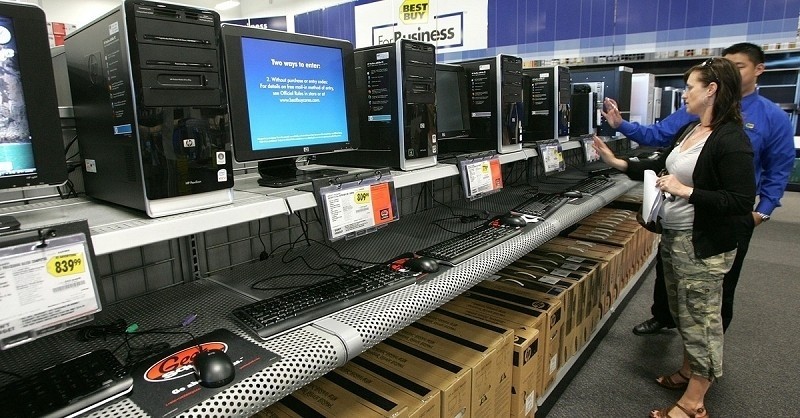
The PC industry’s downturn appears to have been short-lived, at least according to a pair of market research firms. Fourth quarter shipment data from both Gartner and IDC reveals a healthy market rebound, especially in the US.
Gartner – whose numbers are based on desktops, notebooks and Windows tablets – reports that shipments increased a whopping 13.1 percent in the US during the fourth quarter. Globally, shipments totaled 83.7 million which represents a lukewarm one percent year-over-year improvement.
| Company | 4Q14 Shipments | 4Q14 Market Share (%) | 4Q13 Shipments | 4Q13 Market Share (%) | 4Q14-4Q13 Growth (%) |
|
Lenovo |
16,284.8 |
19.4 |
15,153.5 |
18.3 |
7.5 |
|
HP |
15,769.6 |
18.8 |
13,591.3 |
16.4 |
16.0 |
|
Dell |
10,674.1 |
12.7 |
9.810.6 |
11.8 |
8.8 |
|
Acer Group |
6,786.9 |
8.1 |
6,083.4 |
7.3 |
11.6 |
|
ASUS |
6,259.8 |
7.5 |
6,220.2 |
7.5 |
0.6 |
|
Others |
27,971.5 |
33.4 |
32,070.0 |
38.7 |
-12.8 |
|
Total |
83,746.7 |
100.0 |
82,929.1 |
100.0 |
1.0 |
IDC’s numbers paint a similar picture. The firm estimates that global PC shipments topped out at 80.8 million units. That’s a decrease of 2.4 percent compared to the year-ago quarter but still better than analysts’ expectations. In the US, shipments rose 4.7 percent.
It’s worth pointing out that IDC’s figures include Chromebooks (Gartner doesn’t) but excludes all tablets, even Windows-based machines.
Regardless of accounting methods, the two firms do agree that the top three worldwide PC vendors include Lenovo, HP and Dell in that order. The rankings are a bit different in the US, however, as HP is positioned ahead of Dell and Apple – again, in that order – according to both firms.
An increase in tablet and smartphone shipments combined with the tepid reception of Windows 8 has led to a pretty rocky patch for the PC industry. Strong holiday sales, saturation of the tablet market and the impending release of Windows 10, however, certainly offer a ray of hope for PC manufacturers.
https://www.techspot.com/news/59406-pc-shipments-grew-double-digits-last-quarter-tablet.html